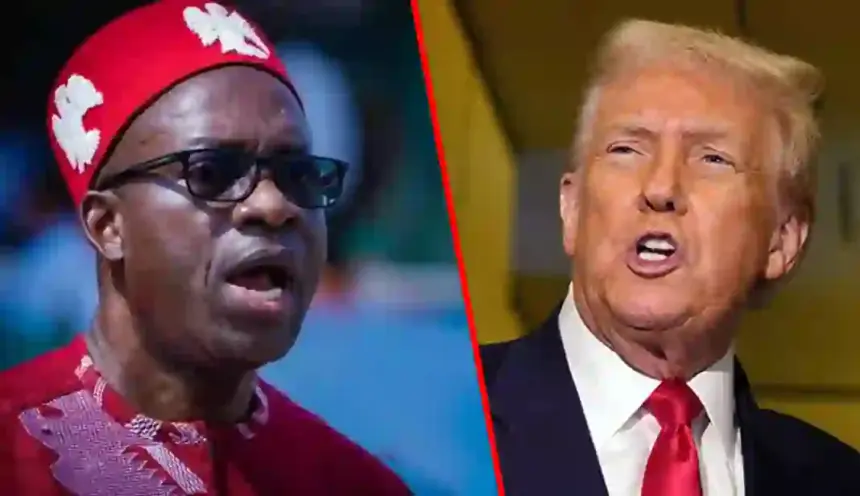- Soludo says the South-East crisis is not a religious genocide.
- He insists Christians are killing Christians in the region.
- Soludo rejects Trump’s claim linking the crisis to religion.
- He calls for dialogue to address the South-East crisis.
Governor Charles Soludo of Anambra State has dismissed claims suggesting there is a religious genocide happening in Nigeria’s South-East.
His reaction follows comments by former U.S. President Donald Trump, who accused the Nigerian government of ignoring the killing of Christians and hinted that America may “protect Christians in Nigeria” through possible military action.
ATTENTION: Click “HERE” to join our WhatsApp group and receive News updates directly on your WhatsApp!
READ ALSO: Ekiti Government Denies ₦1.8bn Abuja Governor’s Lodge Project Reports
Speaking during a live media chat on Channels Television, Soludo explained that while the United States is free to express opinions, its actions must respect international law. He insisted that those framing the conflict as a religious war are misrepresenting the reality on ground.
“There is a deeper conversation and introspection about what goes on in the country. In this part of the world, eastern Nigeria, it is not religious,” he said.
Soludo stressed that the violence in the region is largely internal, driven by criminal groups who share the same faith as their victims.
“People are killing themselves, Christians killing Christians,” he said. “The people in the bushes are Emmanuel, Peter, and John, all Christian names, and they have maimed and killed thousands of our youths. It has nothing to do with religion.”
He further noted that the South-East is overwhelmingly Christian, yet the acts of violence are committed by individuals within the same religious demographic.
READ ALSO: Rivers Government Urges Filmmakers to Promote State’s Cultural Heritage
“In this part of the country, we are 95 percent Christians, and the people in the bushes killing people bear Christian names,” Soludo added.
The governor urged both local and international observers to stop interpreting the crisis through a religious lens. According to him, the problem is rooted in deeper social, political, and economic issues that require dialogue and reconciliation.
“It is wider than the categorisation of Christians and Muslims. Nigeria will overcome, and it will end in conversation,” he said.

